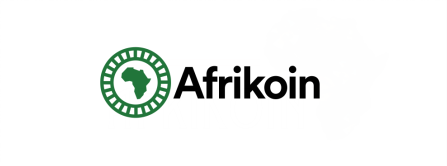An Exploratory Study on E-commerce, Digital Payments and Digital Remittances in Nairobi
by iHub Research, Savannah Fund and biNu Research
One key component to digital money is an understanding of the African online consumer, their preferences and habits when it comes to e-commerce, digital money transfers and remittances. This is in order for players in the space to effectively anticipate their needs and capitalize on the growing population of African online consumers. Little research has been done in Africa that distinctly brings to light this growing populace, their characteristics and needs, and how different stakeholders in the e-commerce/digital money space are engaging online consumers. Further, there is a need to landscape the e-commerce market in general in Africa, with a focus on the existing trends in e-commerce and digital payments, various actors and stakeholders, the macro-factors affecting adoption of e-commerce and digital payments, and the potential for the market to grow. Currently, new and existing players in Africa are struggling to identify the current dynamics of e-commerce and digital payments, and ultimately how to acquire and retain customers.
To learn more about this research: https://docs.google.com/document/d/1r-K8tnimaisckyvm7-G7plwlsO5dwVVB_SWB3yvwHPE/pub
by iHub Research, Savannah Fund and biNu Research
One key component to digital money is an understanding of the African online consumer, their preferences and habits when it comes to e-commerce, digital money transfers and remittances. This is in order for players in the space to effectively anticipate their needs and capitalize on the growing population of African online consumers. Little research has been done in Africa that distinctly brings to light this growing populace, their characteristics and needs, and how different stakeholders in the e-commerce/digital money space are engaging online consumers. Further, there is a need to landscape the e-commerce market in general in Africa, with a focus on the existing trends in e-commerce and digital payments, various actors and stakeholders, the macro-factors affecting adoption of e-commerce and digital payments, and the potential for the market to grow. Currently, new and existing players in Africa are struggling to identify the current dynamics of e-commerce and digital payments, and ultimately how to acquire and retain customers.
To learn more about this research: https://docs.google.com/document/d/1r-K8tnimaisckyvm7-G7plwlsO5dwVVB_SWB3yvwHPE/pub
Mobile money and Somali social networks: Cultivating monetary alternatives in a volatile world
by Gianluca Iazzolino
This paper charts the trajectories of Somali financial flows in Kenya, focussing on the interplay between the informal money transfer institution hawala and the mobile money deployment M-Pesa. It examines how continuity and changes in monetary practices are re-shaping livelihoods in the mostly Somali-inhabited estate of Eastleigh, Nairobi, and discusses the implications of the intertwining of heterogeneous networks upon discourses of value and finance. In so doing, it problematizes neoliberal narratives of financial inclusion which lie behind the design and the implementation of mobile money initiatives, often neglecting both economic rationalities engrained in the empirical realm and the social embeddedness of the technology through which value is stored and transferred. Feeding into the multidisciplinary debate on financial arrangements and livelihoods, it argues that the informal interoperability of hawala and M-Pesa reflects the articulation of the different groups which conflate into the multifaceted Somali diaspora and calls for an approach which takes into account multiple accesses to financial networks instead of a sharp inclusion/exclusion dichotomy.
Centre of African Studies, University of Edinburgh
Institute of Money, Technology and Financial Inclusion, University of California Irvine
by Gianluca Iazzolino
This paper charts the trajectories of Somali financial flows in Kenya, focussing on the interplay between the informal money transfer institution hawala and the mobile money deployment M-Pesa. It examines how continuity and changes in monetary practices are re-shaping livelihoods in the mostly Somali-inhabited estate of Eastleigh, Nairobi, and discusses the implications of the intertwining of heterogeneous networks upon discourses of value and finance. In so doing, it problematizes neoliberal narratives of financial inclusion which lie behind the design and the implementation of mobile money initiatives, often neglecting both economic rationalities engrained in the empirical realm and the social embeddedness of the technology through which value is stored and transferred. Feeding into the multidisciplinary debate on financial arrangements and livelihoods, it argues that the informal interoperability of hawala and M-Pesa reflects the articulation of the different groups which conflate into the multifaceted Somali diaspora and calls for an approach which takes into account multiple accesses to financial networks instead of a sharp inclusion/exclusion dichotomy.
Centre of African Studies, University of Edinburgh
Institute of Money, Technology and Financial Inclusion, University of California Irvine
Binu Research & Rewards: Using mobile to reach the middle of the pyramid with biNubiNu has large panels based in the emerging markets of Africa, Asia, and Latin America. We have a growing base of over 3 million active users keen to share their opinions. Panel members sign up to our rewards platform that allows them to respond to surveys and receive compensation in a variety of ways including mobile airtime. Surveys are created quickly and easily using the self-service platform. Surveys are priced from as little as 20 cents a question. by Jeremy George, biNu Africa Lead
USING REAL TIME NEWS, DATA AND ANALYTICS TO MAKE SMARTER, FASTER, MORE INFORMED BUSINESS DECISIONS IN AFRICA.

